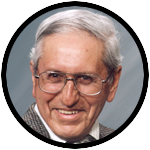
Moises Sandoval
Forty-seven years ago, on Cinco de Mayo in 1970, Father Patricio Flores, the sixth of nine children of illiterate parents who worked as sharecroppers, cotton pickers and rice harvesters in Texas, was ordained as the first Hispanic bishop in the United States. His death recently at age 87 reminded me of how he enriched my life and those of countless others.
In 1970, Hispanics welcomed his ordination with such enthusiasm that it had to be held in San Antonio’s convention center to accommodate the 8,000 people who attended.
Those present, many from outside the archdiocese, saw the former migrant worker as their bishop, especially those who, like my own family, had also worked in the fields. Fortunately, Bishop Flores also saw the entire Mexican-American population as his own, and had the blessing of Archbishop Francis J. Furey to work throughout the country on their behalf.
[hotblock]
He visited Cesar Chavez, the founder of the United Farm Workers, in a California jail; met with the leaders of a huge demonstration in Los Angeles protesting the disproportionate Latino casualties in the Vietnam War; joined in the legal campaign to prosecute a Texas town marshal who had killed a young Mexican-American without justification; and supported the organization of poor people in the San Antonio barrios to seek better schools and municipal services.
I met Bishop Flores after his ordination and over the years interviewed him many times, especially after he became the archbishop of San Antonio. I must say that he became my bishop too when in 1977, I found myself critically ill at Lenox Hill hospital in Manhattan with an amoebic liver abscess that ruptured into my chest cavity. I was not expected to survive.
One day, I received the following letter from Bishop Flores.
“Carisimo Señor Sandoval: I was in DC last Thursday and learned about your being sick and in the hospital. I am indeed very sorry to hear it. I do want to join your family, your many friends and you in prayer to our Heavenly Father. We all ask him to grant you a very speedy recovery.
“Hurry up, yes … but don’t hurry too much. We all need you very much, and you know it. But you need your health and you cannot afford to take unnecessary risks by rushing too fast. You have done too much for others. The time has come for you to do for yourself. Take care.
[hotblock2]
“Let me assure you of a continued remembrance in my daily prayers. Let me know if I can help in any other way. Now is the time to remember que somos tus hermanos (that we are your brothers). Paz y bien.
“I want you to know that you are not alone. We will be with you in spirit and prayer. Peace and very best wishes.”
The letter brought tears to my eyes. What a joy to know that our first Hispanic bishop, though 2,000 miles away, cared enough to send a personal letter encouraging me in my desperate struggle and knew how difficult it is at a time like that to overcome the sense that one is all alone.
I kept the letter on the bedside table in the intensive care unit and when I became discouraged, I would read it again. When I finally left the hospital, I brought it home with me. Over the years, I lost it in my files but later found it. Rereading it, I realize once again what our first Hispanic bishop meant to me and to countless Latinos throughout the nation.
He taught us we are not alone.
PREVIOUS: Pa. Speaker Turzai: Expanding school tax credits a good investment
NEXT: Two Catholic firsts, Flores and Carroll, in times of great change



Share this story